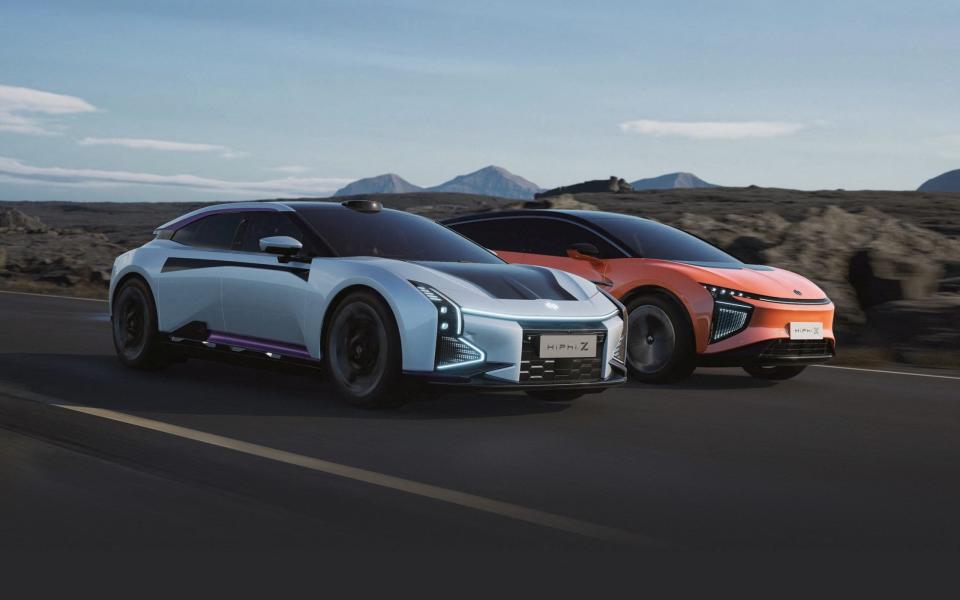Luxury Chinese electric car brand poised to enter Britain

A luxury Chinese electric car brand is plotting to enter the UK market as the looming net zero ban on petrol and diesel prompts a race to win business.
HiPhi, which was co-founded by a former executive at Jaguar Land Rover (JLR), is plotting a European launch for its motors and considering proposals to bring the brand to the UK.
Its cars feature advanced headlights that can be used to play films, as well as dispensers that release different scents according to the mood of the driver.
Mark Stanton, a former director of vehicle engineering at JLR, said the company hopes to announce its plans at next month's Shanghai International Automobile Industry Exhibition.
He said: “You will see some of our cars driving around in Europe by the end of this year.
“We're looking for markets that are receptive to EV vehicles. We're looking for markets receptive to premium vehicles as well.”
Britain will be one of the first countries in the world to ban fossil fuel engines, with the sale of new non-hybrid petrol and diesel cars outlawed in 2030, making it an attractive market for car makers around the world.
Mr Stanton said that after an initial market is chosen, more European countries will follow. He added: “I would hope we can enter most markets ultimately.”
The brand is owned by Human Horizons, co-founded in 2017 in Shanghai by David Ding, former president of General Motors’ joint venture in China, SAIC-GM.
It has two models, the £80,000 HiPhi X sports utility vehicle and the slightly cheaper HiPhi Z sedan.
The company is targeting younger buyers who want advanced technology, Mr Stanton said.
The models have headlamps that can display directions and warnings on the road as well as lighting the way, as well as displaying videos like a cinema projector.
The car will open its doors as a driver approaches and will be able to recognise passengers and drivers with internal cameras.
Mr Stanton said: “That camera on the steering wheel will detect whether you're drowsy.
“It can detect your blood pressure using the camera. It can tell if you're happy or sad and play music accordingly. It even dispenses scent according to what it thinks your mood is.”
He envisages a shock for Western car makers which have been slow to add technology to their cars, comparing the technological leap to the challenge faced by traditional telephones when smartphones were released.
Mr Stanton said: “Driving driving from A to B is no longer the differentiator. The engine is no longer the dominant, the most important factor in a car.”
Young wealthy car buyers will want a car that knows them and anticipates what they want, he said, adding: “Traditional car companies... are not moving in that direction anywhere near quick enough.
“Their electric vehicles are just electric versions of a traditional car.”
Up to 30 new electric vehicle brands are eyeing up the UK car market, according to an industry report seen by The Telegraph in January, most of them Chinese.
Challengers also have designs on the cheaper end of the spectrum amid a race to sell mass market battery-powered cars to Britain.
Companies such as BYD and Ora, which already have agreements in place with UK dealers, will be joined by a raft of other car makers including Chery, Dongfeng and Haval.
They are big brands in China but virtually unknown to British buyers.
Newer car brands have an advantage over incumbents like Volkswagen and BMW in that they do not have combustion engine businesses to wind down and can focus on battery-powered cars, designing them from scratch.
Slowing economic growth in their home market means Chinese electric vehicle makers are now on the hunt for custom elsewhere.

 Yahoo Finance
Yahoo Finance 